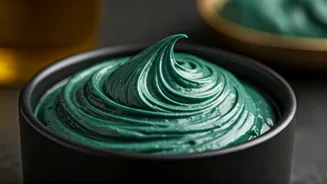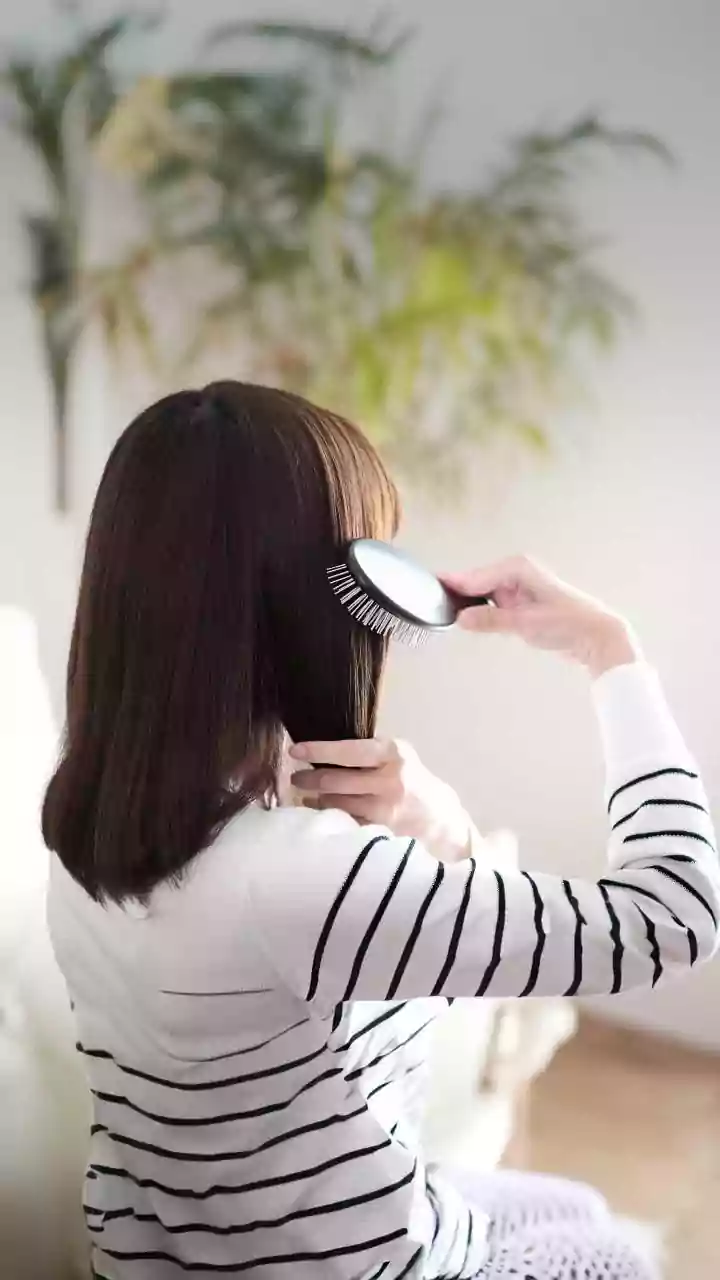Winter Hair Woes
Winter's chilly embrace often brings a host of hair problems. The cold, dry air strips away moisture, leading to brittle strands, split ends, and a dull
appearance. Central heating can worsen these effects, further dehydrating the hair. Additionally, static electricity can make hair unruly and difficult to manage. Hair masks offer a solution by delivering intense hydration and nourishment, helping to counteract the drying effects of winter. They provide essential nutrients that penetrate the hair shaft, repairing damage and restoring elasticity. Regular use of a hair mask during winter can make a significant difference in hair health, leaving it feeling softer, smoother, and more resilient. The masks work by creating a protective barrier against environmental stressors, helping to maintain moisture levels and prevent further damage.
Hydration Heroes
Hydrating hair masks are specifically formulated to replenish moisture, making them essential for combating winter dryness. These masks typically contain ingredients like hyaluronic acid, aloe vera, and various natural oils. These ingredients draw moisture from the environment and seal it into the hair, preventing dehydration. Regular use can significantly improve hair's elasticity, making it less prone to breakage. The best hydrating masks also contain humectants, which help to attract and retain moisture. Applying a hydrating mask once or twice a week can make a huge difference, particularly for those with dry or damaged hair. Look for masks that are free of sulfates and parabens, as these chemicals can further dry the hair. By consistently using hydrating masks, individuals can restore their hair's natural moisture balance, resulting in a healthier, shinier appearance.
Repair and Restore
Repairing hair masks are designed to address existing damage. They often contain ingredients like keratin, amino acids, and proteins that help to rebuild the hair's structure. These components fill in gaps in the hair shaft, smoothing the surface and reducing the appearance of split ends. They also strengthen the hair, making it more resistant to breakage. Masks focusing on repair usually work by penetrating the hair cuticle, delivering essential nutrients deep into the hair fibers. They often include ingredients that help seal the cuticle, preventing further damage from environmental stressors. For individuals with color-treated or chemically-processed hair, these masks are especially beneficial. Using a repairing mask can reverse the effects of damage, restoring shine and elasticity. Consistent use can lead to stronger, healthier, and more vibrant hair, ready to face the challenges of winter.
Smoothing Solutions
Smoothing hair masks are formulated to tame frizz and improve manageability. They typically contain ingredients like argan oil, shea butter, and other emollients that create a smooth surface, reducing static electricity and flyaways. These masks also help to seal the hair cuticle, creating a protective barrier against humidity, which is often a cause of frizz. By smoothing the hair's surface, these masks improve its texture and shine, making it easier to style and maintain. They provide a sleek and polished appearance. Applying a smoothing mask regularly can significantly improve the overall look and feel of your hair, particularly during winter when static and dryness are common issues. Individuals with naturally frizzy or unruly hair will find these masks particularly beneficial, as they provide a solution for achieving smoother, more manageable tresses, even in challenging weather conditions.
Deep Nourishment Power
Deep nourishment hair masks focus on providing intense hydration and essential nutrients to the hair and scalp. They contain ingredients like vitamins, minerals, and fatty acids that nourish the hair follicles and promote overall hair health. These masks often include natural oils and extracts that penetrate deep into the hair shaft, delivering nutrients and repairing damage. They help restore the hair's natural moisture balance and promote healthy growth. Regular use of a deep nourishment mask can improve the hair's strength, elasticity, and shine. They are particularly beneficial for individuals with dry, damaged, or color-treated hair, as they provide the extra care and nourishment needed to keep the hair healthy. Deep nourishment masks often work by creating a protective barrier against environmental stressors, preventing further damage and ensuring a healthy, vibrant appearance.
Finding the Right Mask
Selecting the appropriate hair mask involves considering your hair type and the specific concerns you want to address. For dry hair, opt for hydrating masks with ingredients like hyaluronic acid and natural oils. If your hair is damaged, look for repair masks containing keratin or amino acids. Frizzy hair benefits from smoothing masks with argan oil or shea butter. Consider the ingredients and avoid harsh chemicals like sulfates and parabens. It's also important to follow the instructions on the product label. Apply the mask to clean, damp hair, allowing it to sit for the recommended time. Rinse thoroughly and style as usual. By tailoring your mask selection to your hair's specific needs, you can achieve optimal results and keep your hair looking its best throughout winter. Experimenting with different masks can help you determine which products work best for your unique hair concerns.
Mask Application Tips
Proper application is crucial for maximizing the benefits of a hair mask. Begin by shampooing your hair with a gentle, sulfate-free cleanser to remove any buildup. Gently towel-dry your hair, ensuring it is damp but not dripping wet. Apply the mask evenly from roots to ends, focusing on the areas that need the most attention. Use a wide-tooth comb to distribute the product evenly. Leave the mask on for the recommended time, typically 3 to 20 minutes, depending on the product instructions. For deeper conditioning, consider wrapping your hair in a warm towel or using a shower cap to trap heat, which helps the mask penetrate the hair shaft more effectively. After the specified time, rinse thoroughly with cool water to seal the cuticle. For best results, incorporate hair masks into your regular hair care routine, typically once or twice a week, depending on your hair's needs.
Maintaining Winter Hair
Beyond hair masks, several additional steps can help you maintain healthy hair during winter. Reduce the frequency of heat styling, as heat can further dry out your hair. When you do use heat tools, always apply a heat protectant spray. Consider using a humidifier to add moisture to the air in your home, which helps prevent your hair from drying out. Protect your hair from cold weather by wearing a hat or scarf, as exposure to the elements can cause damage and breakage. Ensure a balanced diet rich in vitamins and minerals, as these nutrients play a crucial role in hair health. Drink plenty of water to stay hydrated from the inside out. Following these additional tips alongside the use of hair masks can significantly improve your hair's health and appearance, making it more resilient and radiant throughout the winter months.



















